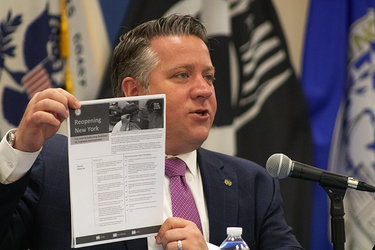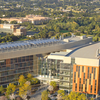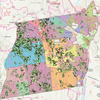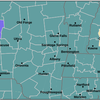Governor OKs Capital Region for Phase 2
ALBANY COUNTY — On Tuesday afternoon, Governor Andrew Cuomo announced that the Capital Region, of which Albany County is a part, can begin Phase 2 of reopening on Wednesday.
Cuomo said a team of national experts had reviewed the data and determined it was safe.
“As more businesses begin to reopen in this next phase, residents should remain responsible and diligent and continue to follow all social distancing and other public health guidelines to help prevent an increase in the spread of the virus,” Cuomo said.
That was the “green light” that Albany County Executive Daniel McCoy had predicted in his Tuesday morning press briefing. McCoy said Phase 2 would open about 123,000 jobs in Albany County, “which is huge.”
The four-phase state system has two-week intervals between each phase to make sure there are no spikes in COVID-19 and that hospitals are prepared.
Cuomo had announced at his Tuesday morning briefing that Western New York was joining five other regions in entering Phase 2. He also said that New York City, the epicenter for the pandemic and the only one of the state’s 10 regions not to begin reopening, was on track to enter Phase 1 on June 8.
On June 29, Cuomo said, day camps can open statewide although no decision has yet been made on sleep-away camps. Cuomo also issued an executive order allowing regions that have met the metrics for Phase 1 to have low-risk outdoor recreational activities.
McCoy said the state had a “long, long” list of businesses in the region that had submitted the required forms, detailing their reopening plans.
“It’s all office-based jobs,” said McCoy. “It’s real-estate services, retail instore-shopping, limited barber and hair salon service.”
Enclosed malls with more than 100,000 square feet are still shut but, McCoy noted, if stores at Colonie Center or Crossgates Mall have outdoor entrances, those stores can open on Wednesday.
McCoy advised business owners and customers alike to go to the state’s website for details on Phase 2 reopening. Customers can ask to see a business’s protocols, McCoy said, adding, “It’s about your safety, too.”
McCoy also said, “Many people are going to be coming out that have been home almost 13 weeks … They’re going to come out to a new world … I know people are nervous … We need you to do the right things.”
Albany County Health Commissioner Elizabeth Whalen said of county residents’ response to the pandemic over the last three months, “This has been an incredible challenge for the community and I think people have done a great job … We have flattened the curve but we’re not out of the woods yet.”
She again stressed the need to stay home when possible, to practice social distancing, to wash hands frequently, and to wear a mask in public.
So far, Albany County has 1,747 confirmed cases of COVID-19 with 769 residents currently under mandatory quarantine and six under precautionary quarantine.
The five-day average for new daily positives is now 16.4.
As of Tuesday morning, 4,614 county residents have completed quarantine, with 1,363 of them having tested positive and recovered. That brings the county’s recovery rate to 78.01 percent.
Twenty-one Albany County residents are hospitalized with one in an intensive-care unit. The county’s hospitalization rate stands at 1.2 percent.
McCoy urged residents who had congregated for recent protests to get tested for COVID-19. The county, working with the Whitney M. Young Jr. Health Center, has set up mobile walk-up test sites in at-risk neighborhoods, and McCoy has said, if the person being tested cannot pay for it, the county will cover the costs.
The number to call is 518-465-4771.
“If we don’t have more people showing up, we’re going to have to shut that down …,”said McCoy. “If you think you’ve been exposed with all the protests going on, we want you tested.”



